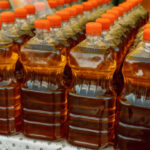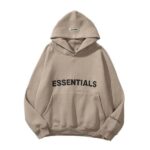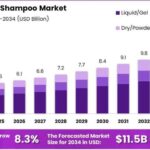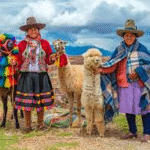Tyler, The Creator’s Golf Wang brand captivates streetwear enthusiasts with bold designs, vibrant colors, and a rebellious spirit. Fans adore the brand’s unique aesthetic, but many eco-conscious shoppers ask a critical question: do Golf Wang shirts prioritize sustainability? This article dives deep into the materials behind Golf Wang’s iconic apparel, exploring whether the brand aligns with eco-friendly practices. We examine available evidence, compare Golf Wang to other streetwear and golf apparel brands, and offer insights for consumers seeking sustainable fashion.
Understanding Golf Wang’s Brand Identity
Golf Wang, launched by Tyler, The Creator in 2011, blends streetwear with playful, artistic flair. The brand’s shirts feature eye-catching graphics, from floral patterns to quirky logos, appealing to a youth-driven audience. Golf Wang shirts stand out for their cultural relevance, often tied to Tyler’s music and creative vision. However, the brand’s website, golfwang.com, focuses heavily on product visuals and drops rather than production details. This lack of transparency sparks curiosity about the materials used in their apparel.
Sustainability in fashion hinges on using eco-friendly materials like organic cotton, recycled polyester, or hemp, paired with ethical manufacturing. Consumers increasingly demand brands disclose sourcing practices and environmental impact. Does Golf Wang meet these expectations, or does its focus remain on style over substance? Let’s explore the evidence.
Investigating Golf Wang Shirt Materials
Golf Wang shirts primarily use cotton, a common material in streetwear. A 2022 product listing for their Fall/Winter collection highlights “100% cotton raw denim pants,” suggesting cotton dominates their fabric choices. Cotton offers breathability and comfort, making it ideal for casual Golf Wang shirts. However, not all cotton equals sustainability. Conventional cotton farming consumes vast amounts of water and pesticides, harming ecosystems. Organic cotton, grown without harmful chemicals, reduces environmental damage, but Golf Wang’s website never specifies organic sourcing. No official statements from Golf Wang confirm the use of recycled materials, low-impact dyes, or sustainable fibers like bamboo or Tencel. A 2020 YouTube video titled “Golf Wang Sustainable Materials Collection Pitch” proposed eco-friendly designs, but it appears to be a fan-made or student project, not an official brand initiative. Without clear evidence of sustainable practices, Golf Wang’s shirts likely rely on standard cotton or cotton blends, which may not align with eco-conscious standards.
Comparing Golf Wang to Sustainable Fashion Brands
To gauge Golf Wang’s sustainability, let’s compare it to other brands. Streetwear giants like Patagonia and Stella McCartney champion eco-friendly materials. Patagonia uses organic cotton and recycled polyester, with certifications like Fair Trade to ensure ethical production. Stella McCartney avoids animal-derived materials and invests in biodegradable fabrics. Golf Wang, by contrast, lacks such certifications or public commitments to sustainability. In the golf apparel space, brands like HyperNatural and Radmor prioritize eco-conscious materials. HyperNatural uses Supima cotton and bamboo, which require less water and chemicals than conventional cotton. Radmor incorporates recycled polyester and organic cotton, emphasizing transparency in sourcing. Golf Wang shirts, while stylish, don’t advertise similar efforts. Brands like Glenmuir highlight Oeko-Tex Standard 100 certification, ensuring textiles are free from harmful substances. Golf Wang’s silence on certifications raises doubts about its environmental focus.
Why Transparency Matters in Fashion
Shoppers today value brands that share detailed production information. A 2023 survey by McKinsey found 66% of consumers prioritize sustainability when buying clothes. Transparent brands build trust by disclosing material origins, factory conditions, and environmental impact. Golf Wang’s website showcases Golf Wang shirts but omits details about sourcing or manufacturing. This gap frustrates eco-conscious fans who want to support sustainable fashion. Without transparency, consumers must assume Golf Wang prioritizes aesthetics over eco-friendly practices. Brands like Everlane provide “cost breakdowns” and factory details, empowering buyers to make informed choices. Golf Wang could strengthen its reputation by adopting similar openness, especially as demand for sustainable streetwear grows.
Exploring Golf Wang’s Production Practices
Beyond materials, production processes impact sustainability. Ethical manufacturing avoids exploitative labor and minimizes waste. Golf Wang’s website offers no insight into its factories or supply chain. Many streetwear brands outsource production to countries with lax labor laws, raising concerns about worker conditions. Sustainable brands like People Tree partner with Fair Trade cooperatives, ensuring fair wages and safe workplaces. Golf Wang’s lack of such partnerships suggests it may not prioritize ethical production.
Dyeing and finishing also affect sustainability. Traditional dyeing pollutes waterways with toxic chemicals. Eco-friendly brands use low-impact dyes or natural pigments to reduce harm. Golf Wang shirts boast vibrant colors, but no evidence confirms the use of sustainable dyeing methods. Until Golf Wang shares more, consumers can only speculate about its environmental footprint.
Can Golf Wang Fans Shop Sustainably?
For fans of Golf Wang shirts, supporting the brand while staying eco-conscious poses challenges. Here are actionable tips to balance style and sustainability:
Reach Out to Golf Wang: Contact the brand through golfwang.com to ask about material sourcing. Customer inquiries can push brands toward transparency.
Check Secondhand Markets: Platforms like Grailed or Depop offer pre-owned Golf Wang shirts, reducing demand for new production.
Care for Your Shirts: Wash Golf Wang shirts in cold water and air-dry them to extend their lifespan and save energy.
Explore Sustainable Alternatives: Brands like HyperNatural or Radmor offer eco-friendly golf-inspired apparel with similar bold aesthetics.
Demand Transparency: Support brands that prioritize sustainability and share detailed production info.
By making mindful choices, fans can enjoy Golf Wang’s vibe while advocating for greener practices.
The Future of Golf Wang and Sustainability
Golf Wang’s influence in streetwear remains undeniable, but its sustainability efforts lag behind industry leaders. Tyler, The Creator’s creative vision drives the brand’s success, yet adopting eco-friendly materials could elevate its appeal. Imagine Golf Wang shirts made with organic cotton or recycled fibers, paired with bold designs. Such a shift could attract eco-conscious fans and align with growing market trends. Other streetwear brands have embraced sustainability without sacrificing style. For example, Pharrell Williams’ Humanrace uses recycled materials in its collections, proving eco-friendly fashion can stay trendy. Golf Wang could follow suit by partnering with sustainable suppliers or launching a limited eco-collection.
What Can Consumers Do Next?
If you love Golf Wang shirts but care about sustainability, take action. Visit golfwang.com and ask about their materials and production. Your questions could spark change. Meanwhile, explore brands with clear sustainability commitments for guilt-free shopping. Check labels for organic cotton or recycled materials, and support secondhand platforms to reduce waste. Golf Wang’s vibrant designs capture hearts, but their environmental impact remains unclear. By demanding transparency and making informed choices, consumers can push Golf Wang toward a greener future. Until then, eco-conscious fans must weigh their love for the brand against their values.
Golf Wang Shirts
Golf Wang shirts embody Tyler, The Creator’s bold, rebellious spirit, making them a streetwear staple. However, evidence suggests they likely use conventional cotton or risk materials. Without official statements on organic fibers, recycled materials, or ethical production, Golf Wang’s sustainability remains questionable. Compared to brands like Patagonia or HyperNatural, Golf Wang lags in transparency and eco-friendly practices.
Fans can still enjoy Golf Wang shirts while advocating for change. Buy secondhand, care for your shirts mindfully, and ask the brand tough questions. As consumers demand more, Golf Wang may evolve to meet the call for sustainable fashion. For now, the choice lies with you: style with uncertainty or a greener wardrobe elsewhere.
- Are Golf Wang Shirts Made with Sustainable Materials?
- Bold, vibrant Golf Wang shirts by Tyler, The Creator feature quirky designs & cotton fabrics. Streetwear staples with a playful edge, perfect for fans.
- golf wang shirt
Related posts:
 Fitness for Mental Clarity: Unlock Your Focus and Inner Strength with DG FIT MIND
Fitness for Mental Clarity: Unlock Your Focus and Inner Strength with DG FIT MIND
 Top Carrier Oil Suppliers in India for Bulk & Wholesale Buyers
Top Carrier Oil Suppliers in India for Bulk & Wholesale Buyers
 Atlas Pro ONTV : La Révolution de la Télévision par Internet
Atlas Pro ONTV : La Révolution de la Télévision par Internet
 Essentials Hoodie Design Philosophy: Minimalism Meets Statement
Essentials Hoodie Design Philosophy: Minimalism Meets Statement
 Make Your Message Stick: The Power of Flyers & Posters in Plano!
Make Your Message Stick: The Power of Flyers & Posters in Plano!
 Why the World Is Going Sulfate-Free—One Shampoo Bottle at a Time
Why the World Is Going Sulfate-Free—One Shampoo Bottle at a Time
 The mystery to great connections? Acknowledge family and companions for who they truly are
The mystery to great connections? Acknowledge family and companions for who they truly are
 Alpaca Apparel Market on the Rise: Sustainability Meets Sophistication
Alpaca Apparel Market on the Rise: Sustainability Meets Sophistication





